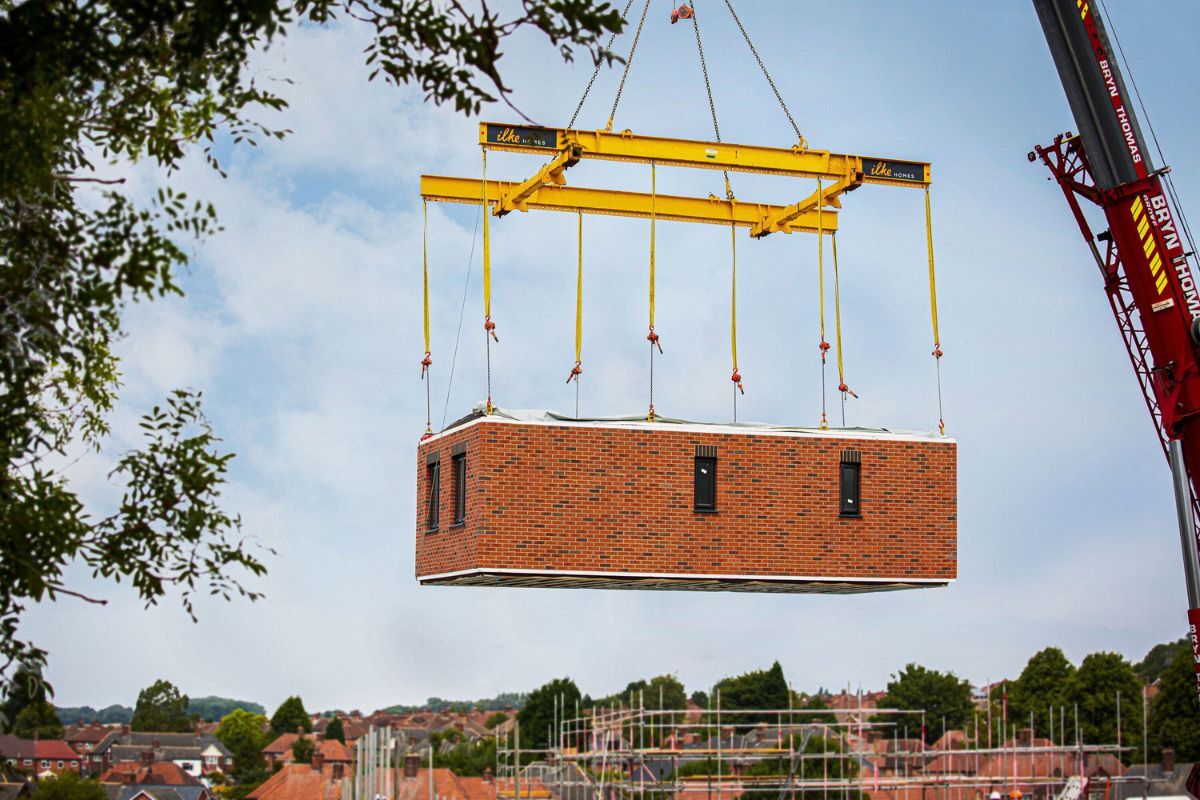You are viewing 1 of your 1 free articles
‘Simply throwing money’ at MMC has not worked, Lords inquiry concludes
The government’s approach to modern methods of construction (MMC) is in “disarray” and “simply throwing money at the sector hasn’t worked”, a House of Lords inquiry has concluded.

The House of Lords Built Environment Committee said its inquiry had found that the sector has “shown some promise”, but that ministers need to gain “a much deeper understanding of how it works” and “demonstrate leadership”.
Meanwhile, millions of pounds of public money have been invested in modular builders, and the government and Homes England have refused to publish their full strategy to encourage the use of MMC.
Panellised systems, known as Category 2 MMC, are seeing some take-up, but fully modular houses built in a factory – Category 1 MMC – have struggled to take hold in the UK, despite being used successfully in other countries.
One of the UK’s largest housing association developers told the inquiry in December that it was not commissioning these homes, as the costs are not “workable” and could be up to 50% more than traditional projects.
Lord Moylan, chair of the committee, told Inside Housing that the inquiry had thrown up “some really interesting insights” into the way public money is spent and how “things can proceed with apparently nobody really being in charge”.
The lord had questioned the government’s focus on MMC given a lack of “comprehensible objectives”.
He added: “What will success look like? I don’t think they really have an answer that you could measure, certainly not one you could put numbers to.”
He described how Homes England had told the inquiry that its MMC strategy was “spread over so many documents we couldn’t possibly assemble it and share it with you”.
“Almost equally hilarious”, said Lord Moylan, was the government’s MMC taskforce, which was given £10m when set up in 2021. But has never met since it was announced.
Over the past two years, two major modular builders – Ilke Homes and House by Urban Splash – went into administration. Homes England had invested £60m in Ilke and provided a debt facility of £26.9m and equity of £3.1m into House by Urban Splash.
The government agency expects “limited recovery” of its Ilke investment and full recovery of its Urban Splash loan, but not the equity.
Lord Moylan stressed that he was not criticising Homes England for losing money on an investment.
However, he added: “we are criticising them because, as far as we can see, they didn’t do proper due diligence on the investment before they made it. They don’t seem really to have understood what they were doing.”
The inquiry urged the government to publish its full MMC strategy now or no later than March 2024. It also suggested that Homes England could increase MMC requirements for housing associations within its Affordable Homes Programme.
Currently, Homes England specifies that strategic partners must deliver 25% of their homes using MMC.
However, the pre-manufactured value of these homes can be as little as 55%, allowing landlords to use categories three-to-seven MMC, which is closer to traditional building methods. Categories six and seven should be made ineligible for the programme, the inquiry suggested.
The inquiry was “particularly disappointed” by the attitude of insurance providers and warranty providers towards MMC, and noted the “extensive time periods” it can take to obtain warranties and a “reticence of insurance providers to accept compliance with building regulations as sufficient”.
A lack of this liability cover was described as having a “detrimental impact” on the delivery of MMC homes.
Meanwhile, standards for MMC parts and specific building regulations for MMC have not yet been set. The inquiry ruled that it was “not appropriate or necessary” for additional building regulations but suggested that approved documents should be updated.
Lord Moylan said the government should also consider why successful foreign modular firms have not established themselves in the UK.
He added: “We heard evidence from one of them, that they had difficulties getting through the procurement network because of lack of experience. So that’s an issue we’re going to ask the government about, the Cabinet Office in particular.”
Homes England declined to comment but pointed to the written evidence it gave to the Lords inquiry.
A spokesperson for the Department for Levelling Up, Housing and Communities said: “We are committed to supporting the MMC sector and tackling the barriers to growth it faces.
“Our £11.5bn Affordable Homes Programme is helping to deliver MMC homes, while the £1.5bn Levelling Up Home Building Fund includes financial support for MMC manufacturers. We are also developing a Publicly Available Specification for MMC with the British Standards Institution.
“We will consider the Lord’s recommendations and respond in due course.”
Sign up for our development and finance newsletter
Already have an account? Click here to manage your newsletters











